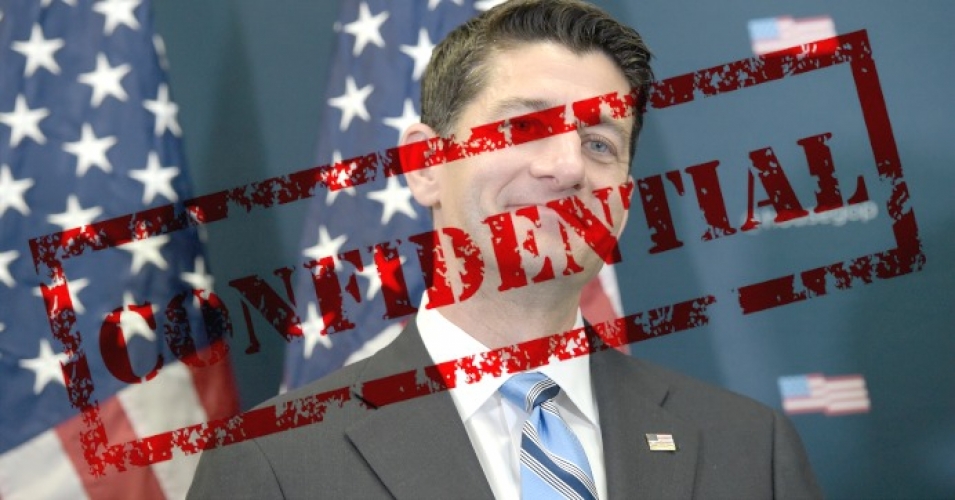By Lauren McCauley/Common Dreams
Amid the uproar over the Republican Party’s attempt to cripple the Office of Congressional Ethics, a little-noticed rule change was passed that guts an essential element of government oversight.
A rules package approved by the House included a sentence that read: “Records created, generated, or received by the congressional office of a Member . . . are exclusively the personal property of the individual Member . . . and such Member . . . has control over such records.”
The change, first pointed out by OpenSecrets.org and reported by the Fiscal Times on Monday, effectively means that some documents are no longer the property of the U.S. government, giving lawmakers the ability to hide critical information from an oversight investigation.
 AP, Common Dreams
AP, Common Dreams
“Who cares whether a congressional office’s budget documents, maintained at taxpayer expense, belong to each individual member, rather than Congress as a body?” asked Ashley Balcerzak, money-in-politics reporter for OpenSecrets. “Maybe the Justice Department, for one. In investigating allegations of public corruption or misuse of funds, criminal investigators frequently need to subpoena such records.”
Balcerzak explained:
Usually, the Fifth Amendment and that bit about self-incrimination does not apply to documents per se, according to Mike Stern, former senior counsel to the U.S. House of Representatives from 1996 to 2004. But there is something called an “act of production” privilege, meaning that just producing the document would be incriminating in itself.
That privilege doesn’t apply to government agencies or corporations. But if a lawmaker is being investigated for misuse of taxpayer funds and law enforcement authorities subpoena her spending records, under this rule, she can assert the privilege to withhold them; they belong to her, not to Congress.
“There’s no cop on the beat,” Sheila Krumholz, executive director of the Center for Responsive Politics, told the Fiscal Times.
“We’ve lost a critical element of independent oversight. Why on earth would Congress now create barriers to investigation and subpoenas of a member’s spending records?” Krumholz added. “This only benefits the incumbent politicians who passed this rule and those who would flout it, not the system and certainly not the public.”
This work is licensed under a Creative Commons Attribution-Share Alike 3.0 License.
–
See also: Salon: GOP’s Ethics Loophole: How They Plan To Kneecap The Office Of Congressional Ethics.
–
Comments welcome.
Posted on January 11, 2017


